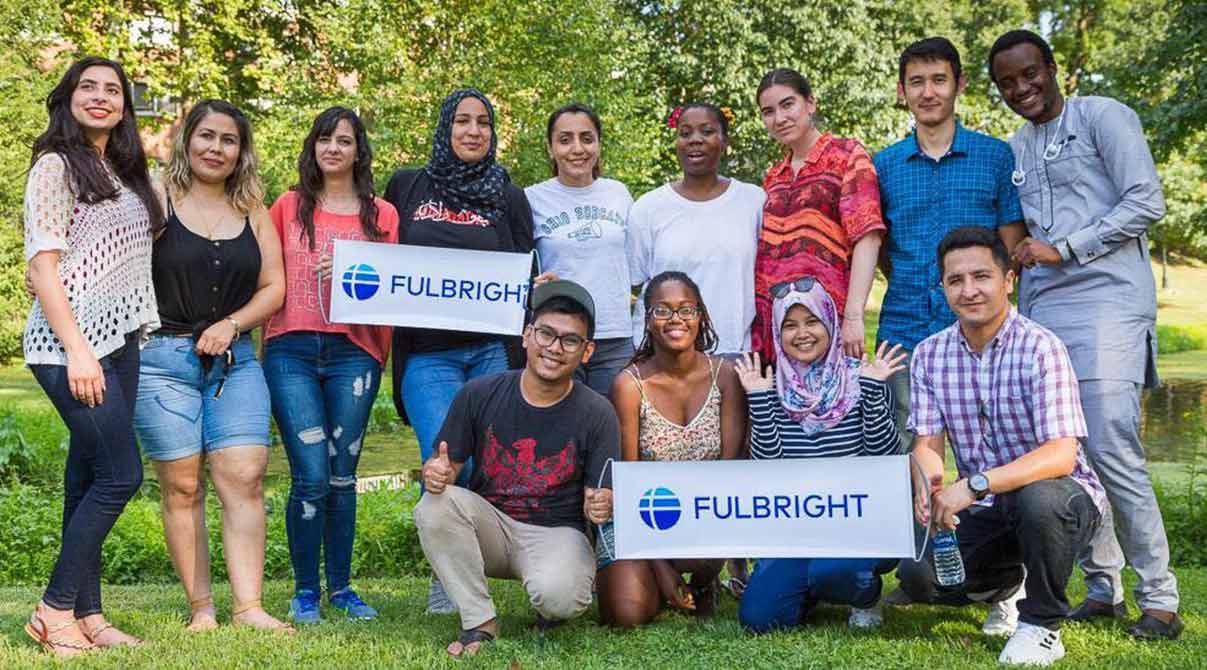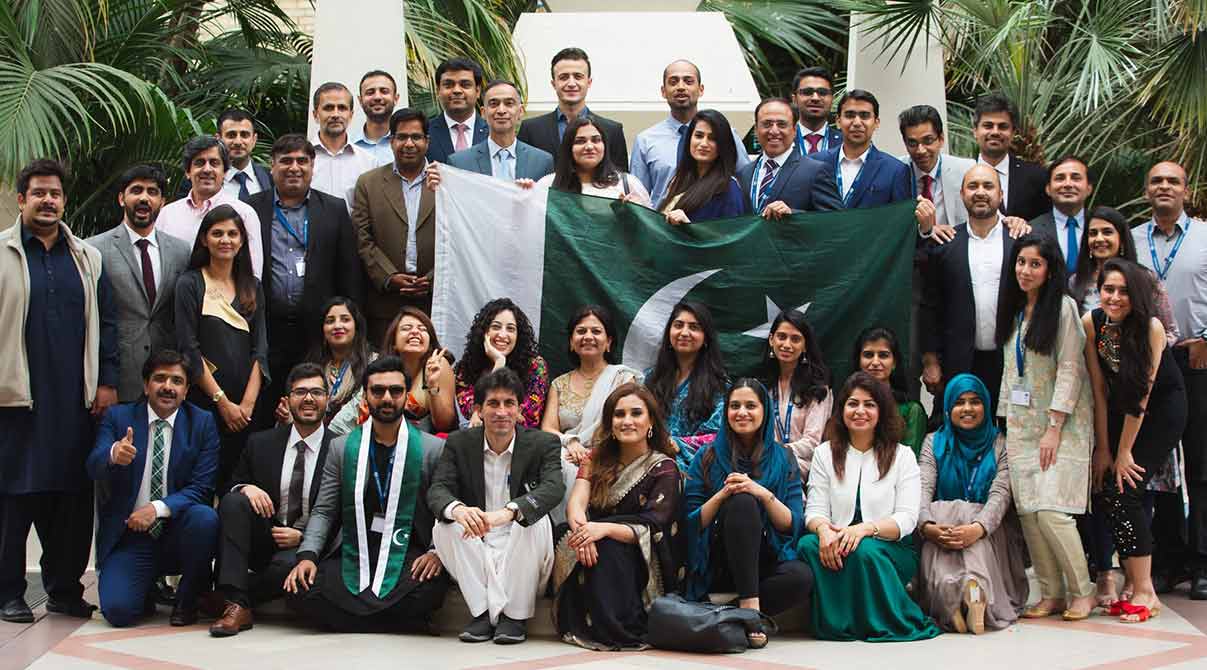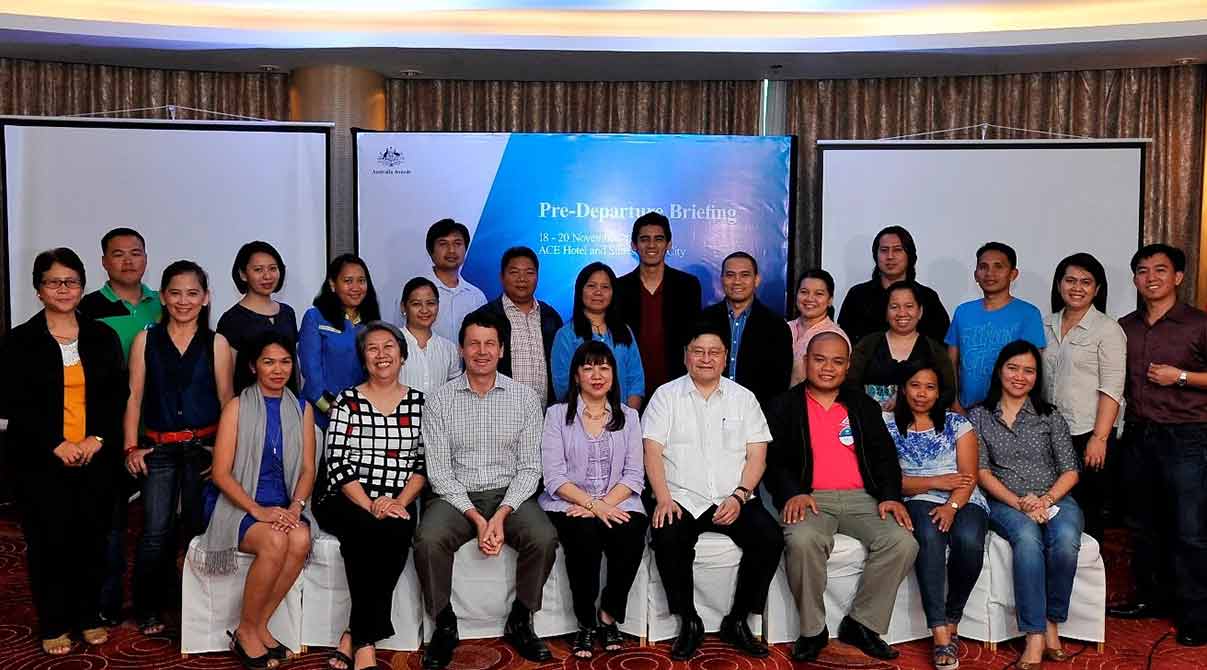The prospect of studying abroad is an exciting one, offering not just educational opportunities but also a chance to experience new cultures, make international friends, and broaden your horizons. However, the financial aspect of studying abroad and achieving worldwide scholarships can often be a daunting challenge, causing many to abandon this dream altogether. That’s where this article comes in.
Our aim is to provide you with a thorough roadmap for navigating the various avenues of financial aid available for studying abroad. From scholarships and grants to fellowships and student loans, we’ll delve into the different types of financial aid that can make your dream of studying in a foreign country a reality—without breaking the bank.
Whether you’re a high school student eyeing undergraduate programs or a working professional considering a career change through further education, this article has something for everyone. We’ll guide you through the intricacies of the application process, offer tips on where to find the best scholarship opportunities, and even share real-life case studies of individuals who have successfully made their study-abroad dreams come true through financial aid.
So, if you’ve ever felt that the lack of funds is the only thing standing between you and a world-class education in a foreign land, read on. This article is your one-stop resource for turning that dream into reality.
How to Study for Free in Any Country?

When it comes to funding your education, especially in a foreign country, the financial burden can often seem overwhelming. However, a plethora of financial aid options are designed to make your educational journey more affordable.
Types of Financial Aid
Understanding these various types of aid— scholarships, grants, fellowships, student loans, and work-study programs—is the first step in this endeavor.
Scholarships
Scholarships are essentially gifts that you don’t have to pay back, and they can come from various entities, including educational institutions, private organizations, and government agencies.
Merit-based worldwide scholarships are generally awarded based on academic, artistic, or athletic achievement and usually require transcripts, recommendations, and sometimes an essay or project.
Need-based scholarships, on the other hand, are allocated based on financial need and usually require submission of financial documents like tax returns and the FAFSA. Then there are student-specific scholarships, which are tailored to individuals who meet particular criteria such as belonging to a specific ethnicity, religion, or social group.
Career-specific scholarships aim to encourage students to pursue studies in particular fields like nursing, engineering, or teaching. Finally, college-specific scholarships are offered by individual educational institutions to students who have been accepted into their programs.
Grants
Like scholarships, grants are generally funds that you don’t need to repay. However, they often come with certain conditions or expectations. Federal grants, for example, are usually based on financial need and require the completion of the FAFSA. Institutional grants are offered by the educational institution you plan to attend and can be either need-based or merit-based. Private grants are offered by private organizations or individuals and can cover a variety of fields or cater to unique student circumstances.
Fellowships
Fellowships are opportunities mainly for graduate and postgraduate students, focusing on research or teaching. Research fellowships assist students working on academic projects, requiring a research proposal, transcripts, and recommendation letters. Teaching fellowships support students committing to teach in areas or subjects with high demand after graduation.
Student Loans
While loans do have to be repaid, they can make education accessible for many. Federal student loans are funded by the government and often have lower interest rates and more flexible repayment options. They usually require the completion of the FAFSA and are generally based on financial need. Private student loans are offered by financial institutions and typically come with higher interest rates and stricter repayment terms. These loans can fill the gaps when federal loans and other types of financial aid are not enough.
Work-Study Programs
Work-study programs allow students to work part-time jobs to earn money that goes directly toward their educational expenses. On-campus work-study jobs are usually based on financial need and are coordinated through the school’s financial aid office. Off-campus work-study opportunities are often related to a student’s field of study and offer the added benefit of real-world experience.
By understanding these different types of financial aid, you can navigate the landscape of opportunities that can make your educational journey more affordable. Each type of financial aid comes with its own set of eligibility criteria, application processes, and benefits, making it crucial to research thoroughly and apply to those most aligned with your needs and qualifications.
How to Find Scholarships and Grants?

Finding the right scholarship or grant among worldwide scholarships can often feel like looking for a needle in a haystack. However, with the proper resources and approach, you can significantly simplify this daunting task. Below are some tried-and-true methods to help you locate worldwide scholarships and grants that are most relevant to you.
Online Search Engines
One of the most accessible ways to find scholarships and grants is through online search engines specifically designed for this purpose. Websites like Fastweb, Scholarship.com, and Cappex allow you to input your details, including your field of study, hobbies, and even personal characteristics, to match you with relevant worldwide scholarships. The key to using these search engines effectively is to start early and update your profile regularly to receive the most accurate and up-to-date information.
Educational Consultants
Another avenue to explore is consulting with educational advisors or consultants who specialize in scholarships and financial aid. These experts can provide personalized guidance tailored to your academic profile, financial situation, and career goals. Although their services can sometimes be costly, the investment often pays off in the form of invaluable advice and a higher likelihood of securing a scholarship.
Social Media and Forums
Don’t underestimate the power of social media and online forums when it comes to finding financial aid. Platforms like Reddit, Twitter, and specialized educational forums often feature threads and discussions on upcoming scholarship opportunities. Alumni and current recipients sometimes share tips and advice that you won’t find in any official guide. Following educational institutions and scholarship foundations on social media can also keep you updated on new opportunities and deadlines.
University Websites
Your target educational institutions are also excellent resources for scholarship and grant information. Universities often list available scholarships, grants, and other types of financial aid on their websites. These scholarships can be both need-based and merit-based and may require a separate application or be automatically considered as part of your admission application.
Alumni Networks
Reaching out to alumni of your target schools can provide you with insider information on available scholarships and grants. Alumni can share their experiences, offer advice on the application process, and even alert you to worldwide scholarships that are less publicized. Many universities have strong alumni networks, accessible through social media groups or the university’s alumni association, willing to assist prospective students in their scholarship search.
Application Process

Securing a scholarship or grant is not just about finding the right opportunity; it’s also about successfully navigating the application process. This journey often involves multiple steps, each crucial in its own way. Below, we break down the key phases of the application process to guide you through this often complex endeavor.
Research
The first step in the application process is thorough research. This involves not just identifying which scholarships or grants you’re eligible for but also understanding what each scholarship or grant committee is looking for in an applicant. Read through the eligibility criteria, application requirements, and deadlines carefully. Some scholarships may require you to be a resident of a specific country, have a certain GPA, or be pursuing a particular field of study. Knowing these details will help you tailor your application to what the scholarship committee values most.
Documentation
Once you’ve pinpointed the scholarships and grants you want to apply for, the next step is to gather all required documents. Commonly required documents include academic records, such as transcripts and diplomas; standardized test scores, if applicable; and financial records like tax returns for need-based scholarships.
Letters of recommendation are often required and should be sought from individuals who can vouch for your academic or professional skills. Make sure to request these letters well in advance to give your recommenders ample time to write a compelling letter.
Application
The core of the application process is filling out the application form and writing any required essays or statements of purpose. Be meticulous when filling out the application form; even minor errors can disqualify you. Essays and statements of purpose should be carefully crafted to highlight your skills, achievements, and suitability for the scholarship. These written components are your opportunity to stand out from the crowd, so take your time to write, revise, and proofread.
Interviews and Tests
Some worldwide scholarships and grants also require an interview or a test as part of the application process. If an interview is required, prepare by practicing common interview questions and researching the scholarship organization. The goal is to demonstrate not just your qualifications but also your passion for your field of study and your suitability for the scholarship. For scholarships that require a test, make sure to prepare thoroughly, focusing on the subjects and topics highlighted in the test guidelines.
Related: Top Universities to Apply in Pakistan
Top Worldwide Scholarships

The landscape of worldwide scholarships and grants can vary dramatically from country to country. Different nations offer distinct opportunities based on their educational systems, availability of funds, and focus on international or domestic student inclusion. Here’s a breakdown of what you can expect in some of the most sought-after scholarships.
1. Fulbright Program

The United States offers a plethora of scholarships catering to a wide array of students, both domestic and international. One of the most prestigious among these is the Fulbright Program, a flagship international educational exchange program sponsored by the U.S. government.
The Fulbright Program is a fully funded scholarship initiative that covers tuition, living stipends, round-trip airfare, health insurance, visa fees, and additional allowances for research, language enhancement, and dependents. The Fulbright Program aims to foster mutual understanding between the people of the United States and other countries through educational and cultural exchanges. Here’s a detailed look at what the Fulbright Program offers.
Diverse Disciplines
Among worldwide scholarships the Fulbright Program is unique in its breadth of disciplines covered. It offers opportunities in virtually all academic fields, including but not limited to:
- Humanities and Arts
- Social Sciences
- STEM (Science, Technology, Engineering, Mathematics)
- Health and Medicine
- Environmental Sciences
- Journalism and Media
Eligibility
Eligibility criteria for the Fulbright Program can vary depending on the specific award and the applicant’s home country, but there are some common elements. Generally, applicants must have at least a bachelor’s degree, demonstrate proficiency in English, and exhibit qualities of leadership and community engagement.
In addition, a project proposal or statement of purpose is often required, outlining what the applicant hopes to achieve during their Fulbright experience. It’s worth noting that U.S. citizens are not only eligible for Fulbright awards to study and conduct research domestically, but they can also apply to venture abroad for academic purposes.
Application Process
The application process for the Fulbright Program is known for its rigor and competitiveness. It usually starts with an initial application that includes academic transcripts, a statement of purpose, a detailed project proposal, and letters of recommendation from individuals who can vouch for the applicant’s academic or professional aptitude.
Shortlisted candidates may then be invited for interviews, which can be conducted either in person or via video conferencing. The final selection is typically based on a combination of academic achievements, leadership potential, and the feasibility and impact of the proposed project or study.
Incentives and Grants
The Fulbright Program is renowned for its comprehensive support package. It covers full tuition fees, ensuring scholars can focus entirely on their academic pursuits. Additionally, scholars receive a monthly stipend to cover living expenses, including accommodation, food, and personal needs. The program also provides funding for round-trip international airfare, facilitating scholars’ mobility between their home country and their host institution.
Health insurance coverage is a critical component, guaranteeing that scholars have access to necessary medical care throughout their tenure. Visa fees are covered, simplifying the administrative process. A pre-academic orientation program equips scholars with essential information and resources, ensuring a smooth transition into their host institution. In addition to these core benefits, scholars may receive allowances for research materials, language enhancement programs, and support for dependents.
2. Chevening Scholarships

When it comes to educational funding in the United Kingdom, the Chevening Scholarships hold a place of high esteem. Chevening Scholarships are fully funded and cover tuition fees, a monthly living stipend, round-trip airfare, visa fees, an arrival allowance, research grants (if applicable), and various other allowances for language courses and participation in Chevening events.
Sponsored by the UK government, these scholarships aim to cultivate global leaders by providing exceptional students from around the world an opportunity to undertake postgraduate study at British universities. Much like the Fulbright Program in the United States, Chevening Scholarships are designed to foster international relations and enable cultural exchange, but they are uniquely British in their approach and opportunities.
Diverse Disciplines
The scope of disciplines covered by Chevening Scholarships is impressively broad, encompassing everything from science and technology to the arts and humanities. here are some common disciplines that recipients often pursue:
- Business and Management
- Public Policy and Governance
- Engineering and Technology
- Environmental Sciences
- Public Health and Medicine
- Law and Human Rights
- Journalism and Media Studies
- Economics and Finance
- International Relations and Diplomacy
- Arts and Humanities
Eligibility
Eligibility criteria for Chevening Scholarships include being a citizen of a Chevening-eligible country, holding an undergraduate degree that enables entry into a postgraduate program, and having at least two years of work experience. Candidates must also meet the English language requirements and receive an unconditional offer from a UK university by a specified date. The scholarships are particularly geared towards individuals who demonstrate leadership potential and a commitment to contributing to their home countries.
Application Process
The application process for Chevening Scholarships is multi-layered and highly competitive. It usually begins with an online application that necessitates the submission of academic transcripts, a detailed CV, and references. This is followed by a series of essays that explore the applicant’s career plans, leadership experience, and understanding of international relations.
Shortlisted candidates are then invited for an in-depth interview, which plays a crucial role in the final selection. The interviews are often conducted at the British embassy or high commission in the applicant’s home country and focus on assessing the candidate’s potential as a future leader and ambassador for the Chevening community.
Incentives and Grants
Chevening Scholarships present a robust set of incentives to empower scholars during their academic journey. Notably, they cover full tuition fees, alleviating the financial burden of education. A monthly stipend supports living expenses, including accommodation, food, and transportation. A travel allowance ensures that scholars can comfortably journey to and from their host country. Visa fees are included, streamlining the administrative process.
An arrival allowance assists with initial costs upon arrival. For scholars in research-based programs, a dissertation grant may be available. Language proficiency courses are accessible to enhance communication skills. Scholars benefit from exclusive Chevening events and a pre-departure briefing that provides essential information and guidance.
Related: Coca Cola’s MENA Scholarship Pakistan 2016
3. Vanier Canada Graduate Scholarships

In the realm of Canadian higher education, the Vanier Canada Graduate Scholarships are regarded as fully funded scholarships, a pinnacle of academic excellence and research innovation. The Vanier Canada Graduate Scholarships offer full funding, including an annual stipend of $50,000 for up to three years of doctoral studies, potential tuition support, a research allowance, and additional benefits for scholars.
Funded by the Canadian government, these scholarships aim to attract world-class doctoral students to Canadian institutions. Much like the Fulbright Program in the United States and the Chevening Scholarships in the UK, the Vanier Scholarships are designed to bolster Canada’s standing as a global center for research and higher education.
Diverse Disciplines
The Vanier Canada Graduate Scholarships are highly versatile, covering a wide range of academic fields. The scholarships are generally categorized into three broad areas:
- Health Research
- Natural Sciences and Engineering
- Social Sciences and Humanities
Whether you’re interested in cutting-edge biomedical research, sustainable engineering solutions, or an in-depth analysis of social issues, the Vanier Scholarships offer opportunities for doctoral studies across the spectrum.
Eligibility
Eligibility for the Vanier Scholarships is stringent, reflecting the program’s high academic standards. Applicants must be nominated by a Canadian institution with a quota for Vanier Scholars, be pursuing their first doctoral degree, and intend to conduct their research at the nominating institution. Both Canadian citizens and international students are eligible to apply. A strong academic record, research potential, and leadership skills are key factors in the selection process.
Application Process
The Vanier Canada Graduate Scholarships application process is both rigorous and competitive. Candidates must first be nominated by a Canadian institution that holds a Vanier quota. Upon nomination, applicants submit a comprehensive package that includes academic records, a research proposal, and letters of recommendation. The applications undergo peer review by experts in the relevant fields, and final selections are based on academic merit, research potential, and leadership skills.
Incentives and Grants
The Vanier Canada Graduate Scholarships program offers substantial support to doctoral students in Canada. Scholars receive an annual stipend of $50,000 for up to three years of doctoral studies, providing consistent financial support. Some institutions may also cover tuition costs, further alleviating the financial burden.
Additionally, scholars may receive a research allowance to support their research activities. Vanier Scholars have access to leadership and professional development opportunities, enhancing their academic and research skills. They become part of a distinguished network of fellow scholars, fostering collaboration and knowledge exchange.
The program welcomes both Canadian citizens and international students, offering valuable opportunities for doctoral studies. Scholars are encouraged to engage in interdisciplinary research, exploring a wide range of academic fields. Health insurance coverage, access to institutional resources, and support for travel and conferences contribute to a comprehensive support package.
4. Australia Awards Scholarships

In Australia’s educational landscape, the Australia Awards Scholarships hold a prominent position. These are fully funded scholarships offered by the Australian Government, aimed to contribute to the long-term development needs of Australia’s partner countries. They offer opportunities for people from developing countries to undertake full-time undergraduate or postgraduate study at Australian universities and Technical and Further Education (TAFE) institutions.
Diverse Disciplines
The Australia Awards Scholarships are versatile in the academic fields they cover. They are open to a variety of disciplines, including but not limited to:
- Agriculture and Rural Development
- Environmental Management and Climate Change
- Public Health and Healthcare
- Engineering and Infrastructure
- Governance and Public Policy
- Education and Training
Eligibility
Eligibility criteria for the Australia Awards Scholarships are tied to specific development needs of the applicant’s home country. Generally, applicants must be citizens of an eligible country, meet English language requirements, and hold a relevant undergraduate degree. The scholarships target individuals who are committed to returning home and contributing to their country’s development.
Application Process
The application process for the Australia Awards Scholarships is robust and highly competitive. Candidates usually start with an online application, submitting academic transcripts, employment records, and a development impact plan. This plan outlines how the applicant aims to contribute to their home country’s development post-study.
Shortlisted candidates are often invited for interviews and may need to take additional language or aptitude tests. The final selection is based on academic qualifications, professional experience, and the potential for impact in the candidate’s home country.
Incentives and Grants
Australia Scholarships encompass a range of incentives to support international students in their pursuit of higher education. Many scholarships cover full tuition costs, making education accessible.
Living allowances provide financial support for day-to-day expenses, including accommodation, food, transportation, and personal needs. Overseas Student Health Cover (OSHC) ensures that international students have necessary health insurance coverage. Travel allowances offset the costs of travel to and from Australia. Some scholarships offer accommodation support, easing the financial burden of housing. Establishment allowances assist with initial setup costs, and language proficiency courses may be provided to improve communication skills. Research funding, fieldwork and internship support, and coverage for family members may also be available.
5. Erasmus+ Program – Non-UK

In the context of European higher education, the Erasmus+ program is a standout, serving as a flagship initiative funded by the European Union. Established to support education, training, youth, and sports in Europe, Erasmus+ aims to foster transnational cooperation and mobility. Unlike country-specific scholarships, Erasmus+ provides opportunities across various European countries, thus embodying the essence of European unity and diversity.
Diverse Disciplines
Erasmus+ covers an impressively broad range of academic fields and disciplines. The program is not limited to any specific area of study and includes:
- Social Sciences and Humanities
- STEM Fields (Science, Technology, Engineering, Mathematics)
- Arts and Design
- Business and Economics
- Environmental Sciences
- Healthcare and Medicine
Eligibility
Eligibility for the Erasmus+ program can vary depending on the specific action and country. However, most opportunities are open to students enrolled in higher education institutions in Erasmus+ program countries. Some actions also allow participation from partner countries. Both undergraduate and postgraduate students can apply, and there are also opportunities for staff exchanges and training.
Application Process
The application process for Erasmus+ is usually carried out through the applicant’s home institution, which partners with European institutions for student exchanges. The process typically involves submitting an academic transcript, a statement of purpose, and sometimes letters of recommendation.
Upon selection, students usually spend a semester or a full academic year at the partner institution. Financial support is provided, often covering living expenses, travel costs, and sometimes even tuition fees.
Incentives and Grants
The Erasmus+ Program offers a range of incentives to promote international education and collaboration. Scholarships and grants are provided to support students, researchers, and educators in their endeavors abroad. Some activities, particularly in higher education, may include tuition fee waivers. Participants receive financial support for travel expenses, covering costs associated with moving to a different country.
For long-term mobility, a monthly living allowance assists with accommodation, food, and personal expenses. Insurance coverage ensures that participants are protected during their mobility period. Language support and pre-departure and on-arrival assistance are also provided. The program encourages the recognition of studies and qualifications obtained abroad, enhancing the value of international experiences.
Related: A Step by Step Guide to Apply for Education in Germany
Tips and Strategies for Securing Scholarships

Navigating the labyrinthine world of scholarships and grants can be overwhelming, but with the right strategies, you can increase your odds of success. Below are some key tips and strategies that can guide you through this challenging yet rewarding journey.
Timing is Everything
The early bird often does catch the worm when it comes to scholarships. Many programs have application timelines that may be up to a year before the start of the academic program. Starting your research early gives you ample time to understand eligibility criteria, gather necessary documents, and craft compelling application essays. If possible, begin your scholarship search at least a year before you plan to start your studies.
Leverage Your Network
Never underestimate the power of networking in your scholarship search. Reach out to alumni, consult academic advisors, and connect with current students in your target schools. They can offer invaluable insights into what scholarship committees look for and may even alert you to opportunities you weren’t aware of. Social media platforms and educational forums are also excellent places to build your network.
Keep Track of Deadlines
When juggling multiple scholarship applications, it’s easy to lose track of deadlines. Missing a deadline is an automatic disqualification, no matter how impressive your application is. Use digital tools like calendars or specialized apps to set reminders for each stage of the application process, from initial submission to potential interviews.
Follow Up
After you’ve submitted your applications, the process isn’t over. Many scholarships require an interview, and some may even ask for additional information or clarification. Always check your email and phone messages regularly to ensure you don’t miss any communications from scholarship committees. If a considerable amount of time has passed since the deadline and you haven’t heard back, it’s acceptable to send a polite email to inquire about the status of your application.
The Bottom Line
The journey to securing a scholarship is often a complex and challenging one, but the rewards are immeasurable. Not only do scholarships offer financial relief, but they also provide invaluable opportunities for academic growth, professional development, and cultural exchange.
From understanding the importance of education to exploring various types of financial aid and diving deep into specific scholarship opportunities in countries like the USA, UK, Canada, Australia, and Europe, this comprehensive guide aims to arm you with the knowledge and strategies you need to make informed decisions.
Remember, worldwide scholarships are not just about financial aid; they’re stepping stones to broader horizons, catalysts for personal and professional growth, and, most importantly, enablers that can help you transform your dreams into reality. So go ahead, take that first step, and embark on a journey that could change your life forever.